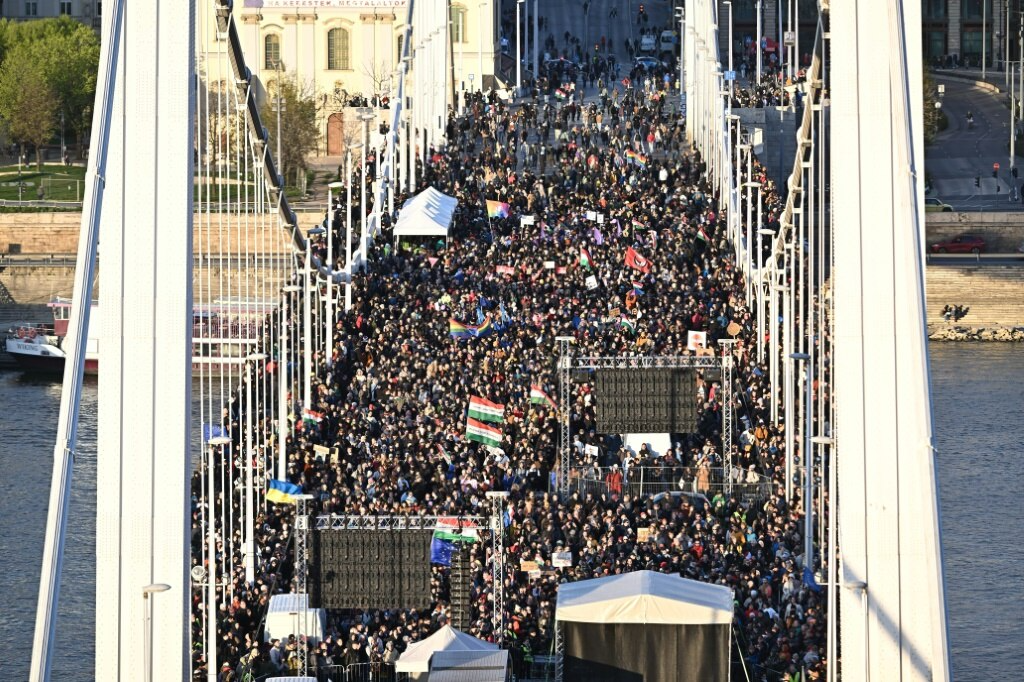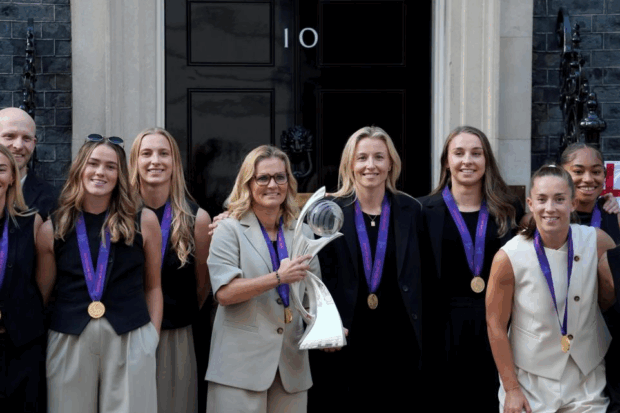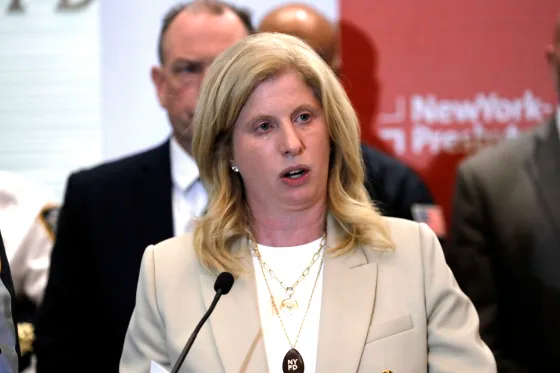
Hungarian lawmakers are set to vote Monday on a constitutional amendment that critics view as restricting freedoms of assembly and expression while further limiting the rights of LGBTQ+ communities in the country.
The amendment, almost certain to pass with the two-thirds majority held by Prime Minister Viktor Orbán’s nationalist Fidesz party, would constitutionally prohibit public events held by LGBTQ+ communities, including Budapest’s annual Pride celebration that draws thousands of participants.
It would also provide a constitutional basis for denying gender identities or sexual characteristics of minority groups and allow for the suspension of citizenship for some Hungarians deemed to pose a threat to national security or sovereignty.
The amendment, the 15th to Hungary’s constitution since it was authored and approved by the ruling Fidesz-KDNP coalition in 2011, strengthens a law fast-tracked in March that criminalizes holding or attending events that violate Hungary’s “child protection” legislation, which prohibits the “depiction or promotion” of homosexuality to minors under 18.
The March law permits authorities to use facial recognition technology to identify individuals attending prohibited events like Budapest Pride and imposes fines up to 200,000 Hungarian forints ($546) for violations.
Legal experts have argued that such assembly restrictions violate Hungary’s constitution. To address this, the amendment declares that children’s rights to moral, physical, and spiritual development supersede all fundamental rights except the right to life—including the right to peaceful assembly.
The amendment also states that “a person’s sex at birth is a biological characteristic and can be either male or female,” expanding an earlier amendment prohibiting same-sex adoption by defining a mother as a woman and a father as a man.
This declaration would constitutionally deny the gender identities of transgender people and ignore the existence of intersex individuals, who are born with atypical sexual characteristics that don’t align with binary conceptions of male and female. The United Nations human rights agency notes that up to 1.7% of the global population is born with intersex traits.
The amendment and previous legislation targeting LGBTQ+ communities resemble similar restrictions against sexual minorities in Russia. Orbán, considered Russian President Vladimir Putin’s closest ally in the European Union, has recently prohibited same-sex adoption and banned LGBTQ+ content in television, films, advertisements, and literature available to minors.
While the government argues these policies protect children from “sexual propaganda,” critics see them as part of a broader strategy to scapegoat sexual minorities and mobilize Orbán’s conservative base.
Hungary has recently taken measures to protect what it describes as national sovereignty from alleged foreign interference in its politics. Orbán, who describes himself as an “illiberal” leader, has intensified efforts to restrict critics, including media outlets and civil rights and anti-corruption groups, which he claims undermine Hungary’s sovereignty by receiving international financial support.
In a March speech, Orbán compared people working for such groups to insects and pledged to “eliminate the entire shadow army” of foreign-funded “politicians, judges, journalists, pseudo-NGOs, and political activists.”
As part of the government’s sovereignty protection efforts, the constitutional amendment would allow suspension of citizenship for Hungarians deemed to pose a threat to public order, security, or national security. Such suspensions would apply to Hungarian citizens who also hold citizenship of a non-EU or non-European Economic Area country and could last up to 10 years.
The March law banning Pride sparked protests across Hungary, with thousands demonstrating for the restoration of assembly rights. Protestors blocked bridges and major thoroughfares in Budapest—tactics Orbán later said would be prohibited by new legislation.
Responding to the Pride ban, local organizers stated, “This is not child protection; this is fascism.”
On Monday, when lawmakers vote on the constitutional amendment, the opposition Momentum party plans to blockade parliament to prevent the vote. The party accused Orbán’s government of being an “intimidating and cowardly power,” writing on social media, “Let’s collectively prevent them from leading us down the Putin road and depriving us of our freedom.”
Additional protests are expected following the amendment’s passage.

















Be the first to leave a comment